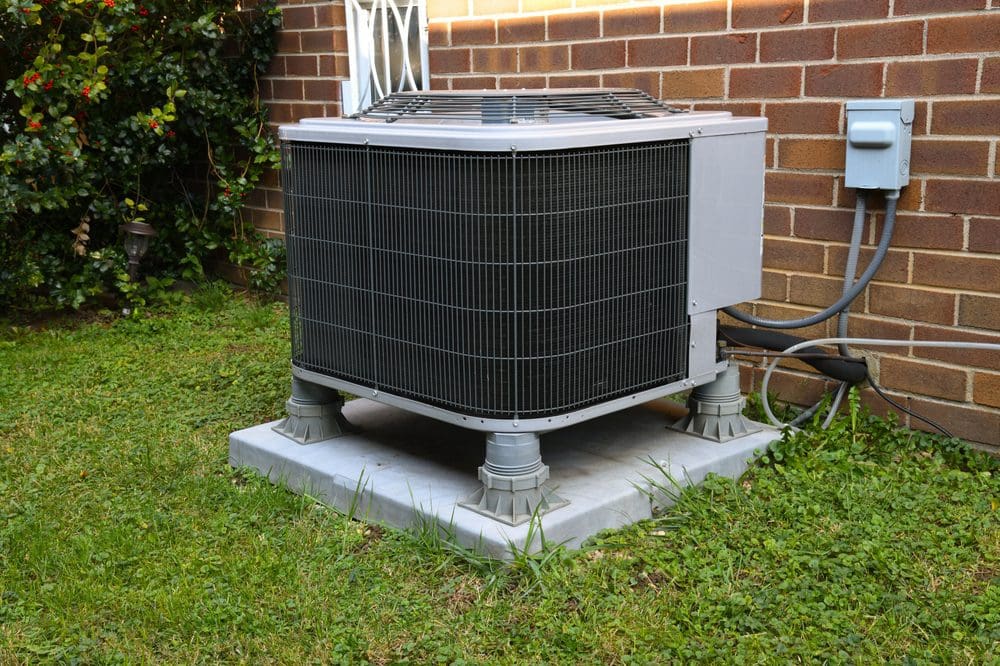
Air conditioning units are a common and essential component of many homes. However, if you have owned your unit for a while or are moving into a new home, you may have a few questions about how long you can expect your air conditioner to last. Unfortunately, there isn’t always an easy answer. Several factors go into the lifespan of the average air conditioning unit. These mitigating factors make obtaining an HVAC warranty for your air conditioner even more critical.
In this post, we will review the steps you can take to enjoy your air conditioner for as long as possible. We will also review the types of HVAC warranties, the different types of coverage, and how to use them successfully.
Average Lifespan of AC Units
An air conditioning unit of high quality that has been installed properly should last an average of fifteen years. However, with the proper care, some air conditioners may last up to twenty or twenty-five years.
Let’s take a look at some other factors that could affect your unit’s overall lifespan.
Factors That Affect the Lifespan of an Air Conditioner
Several factors play into the average length of an air conditioner’s lifespan.
-
Age of the AC.
An air conditioner’s age is the first sign that your unit may be nearing the end of its lifespan. You will usually find a metal plate outside the air conditioner listing the manufacturer’s date and serial number for reference. While your air conditioner may be running strong at the fifteen-year mark, you may want to check on it occasionally to ensure it remains functional and efficient.
-
Usage & Maintenance.
How frequently you use the air conditioner will also affect its lifespan. If you prefer cooler temperatures and use it extensively, you may notice the unit decreases in efficiency over time.
Homeowners should also regularly check the unit’s air filters. Dirty or damaged air filters may decrease efficiency and lead to other problems over time. Most experts also recommend that a professional technician check, clean, and maintain air conditioners once a year.
-
Quality & SEER Rating.
While there are many different brands of air conditioners, some offer higher quality than others. Since 1992, air conditioners have been required to demonstrate a Seasonal Energy Efficiency Ratio (SEER) Rating to show they have met the minimum standard. Look for the SEER rating average for most air conditioners of 16, although some will go as high as 23.
-
Climate & Environment.
Your home’s location offers further information about what you can expect for your air conditioning unit’s lifespan. Hotter climates tempt you to run the unit at lower temperatures more frequently to stay comfortable. Remember that your air conditioner might not last as long while running at these levels.
The type of elements your unit is exposed to may affect its longevity. Be sure to keep the unit free from debris, such as leaves, pine needles, dirt, or pinecones. If your unit is exposed to particularly harsh weather or salty air, plan to schedule maintenance checks more often.
Ways to Extend the Lifespan of an AC
There is good news. Here are ways to extend your air conditioner’s lifespan, regardless of the unit’s age, usage, quality, or climate.
- Regular Maintenance. While you may want to check or replace the air filter, contact a licensed HVAC professional to complete a thorough annual cleaning and inspection. They will also be able to spot any developing issues and address them immediately.
- Reasonable Temperature Settings. Similar to many other appliances, air conditioners work best at steady settings. The Department of Energy recommends a consistent temperature setting of 78 degrees to maximize energy efficiency and maintain comfort in most homes. If this feels too warm, gradually reduce it by a degree and see how the temperature feels. Remember that the lower you go, the greater your demands on the unit long-term.
- Using a Programmable Thermostat. Opt for a programmable thermostat for even greater energy efficiency. These smart thermostats allow you to set the temperature for different settings depending on the day of the week and time of day. For example, set the temperature so your home starts cooling down when you arrive home or after you have gone to bed. Consider the days and times you will benefit from the more comfortable temperatures and adjust accordingly.
- Proper AC Unit Sizing. The size of your air conditioning unit is another consideration for a longer lifespan. Units that are too small for the square footage of your home will have to work extra hard to cool each room. However, if an air conditioning unit is too large, you may be expending more energy than you need for comfort.
- Using Ceiling Fans to Help Circulate Air. Remember your ceiling fans. Set them to turn counterclockwise so the air circulates back to the room. While fans won’t necessarily add coolness to the room, it will allow the cold air to spread out more.
Now that you know how to extend your air conditioner’s lifespan, let’s look at the types of warranties available.
Types of HVAC Warranties & What They Cover
There are four different types of air conditioner warranties for you to consider: a manufacturer’s warranty; an extended warranty; a home warranty; and a labor warranty.
Manufacturer Warranty
A manufacturer’s warranty covers any problems arising from the components of the air conditioning unit. Manufacturers’ warranties are often valid for twelve to fifteen years, almost the lifespan of the typical air conditioner. Be sure you know when the warranty will expire.
Extended Warranty
Some manufacturers provide their consumers the chance to purchase an extended warranty. This plan offers additional coverage beyond the original expiration date. Homeowners can choose this plan when they install a new air conditioner or at any point before the manufacturer’s warranty expires.
Home Warranty
A home warranty is another option, especially if you purchase a home with an existing unit. This type of warranty falls outside home insurance plans as an additional cost. Home warranties will provide protection for all major appliances and systems in the home, including HVAC, when repairs are needed.
Labor Warranty
You will also want to consider a labor warranty for your HVAC system. Some manufacturers will provide the option of obtaining a labor warranty. For example, the Lennox Warranty Your Way plan includes labor-related coverage costs for an additional three years.
Reach out to an HVAC company that provides a range of different options for you to choose from. Hurley & David offers warranty protection for manufacturing and labor to give their customers peace of mind.
How to File a Claim and Use Your Air Conditioner Warranty
If it turns out your air conditioner is acting up, and you need to use your warranty, follow these steps for success.
- Review Your Warranty. Check the original warranty’s origination and expiration dates to ensure it is still active. If you don’t have it, note the brand, serial number, and model number, and contact the manufacturer directly.
- Document the Problem. Check to see if the unit is malfunctioning due to a dirty air filter or debris buildup. If these aren’t the issues, note precisely what is happening and when so you can communicate them clearly.
- Contact the Manufacturer. Start with the manufacturer to see if they require you to seek their support first. They may have specific steps for you to follow to access the warranty terms.
- Schedule an Inspection. Contact a reputable HVAC company, such as Hurley & David, and schedule a time for them to inspect your unit. Trained technicians can diagnose the problem and let you know what the warranty covers and if anything isn’t.
- Wait for Approval. Depending on your warranty type, you may need to wait for approval before the repairs can begin. Review your warranty terms and speak with your HVAC technician if you have questions about the timeline.
- Get the Repair or Replacement. Once the warranty terms have been met, your HVAC technician will inform you of the best options. Your unit may only need a part or two or need to be replaced entirely. The type of service required will determine how long you might have to wait for the cool air to start flowing again.
Don’t Wait to Schedule Your Appointment
As you can see, an air conditioner can have an even longer lifespan with suitable attention, care, and maintenance. So stretch your savings, and ensure your peace of mind by investing in the proper HVAC warranty for your home system.
If you have any questions about your air conditioning unit or think it’s ready for a maintenance check, contact the experts at Hurley & David. Hurley & David uses the latest technology and top-of-the-line equipment to diagnose and manage any air conditioning problem that may occur.
You can easily schedule an appointment with Hurley & David online or by phone. Their trained and certified HVAC professionals are available twenty-four hours a day.


